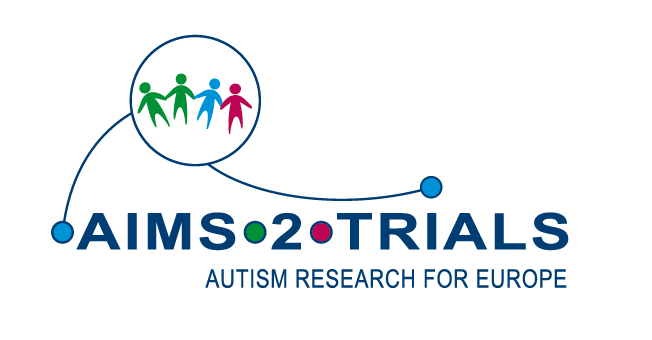IMI Reporting

Publishable Summaries
Whenever the consortium delivers an aspect of the grant agreement (‘a deliverable’), the IMI requires a summary paragraph, which can be made public. These publishable summaries are provided below and will be updated as they become available. The heading numbers relate to the grant agreement.
By its nature, this page contains summaries without context or explanation. The rest of this website is designed to be a more accessible and understandable resource for communicating the work carried out by the AIMS-2-TRIALS consortium. It is therefore recommended that readers explore via the menu at the top of the site.
D1.6 Press Release
Publishable Summary
A press release was drafted by the King’s College London (project coordinator) and published by KCL and ARTTIC on 18th June 2018 through a wide network of external partners. At the same time, it was distributed to all participating institutions’ public relations offices which then sent the press release to their own contacts or used them as a communication too. Several partners translated the press release in their language (e.g. TUM in German and SERMAS in Spanish) in order to broaden the public and reaching people more locally.
Partners published the press release through their own communication channels. Several partners published on LinkedIn (BioSci got over 1,000 views on their publication) or mentioned the press release in article in their internal newsletters or on their website.
Reliable numbers do not exist, due to technical difficulties, for the reach and impact of the publication of the press release but all 48 partners used their communication channels for distribution.
D3.1 Clinical Trial Network (CTN) established and trained to GCP standards and ‘trial ready’ with a single point of contact
Publishable Summary
The AIMS-2-TRIALS Clinical Trial Network (CTN) is reducing barriers to running clinical trials in Autism Spectrum Disorder (ASD) by developing a unique and sustainable European trial infrastructure that provides access to large and diverse patient groups across a wide geographic spread in Europe. We deliver a high-quality network trained to GCP standards to conduct safe trials of promising emerging therapies for patients with ASD. The hub-and-spoke system and single point of contact will increase efficiency of the network by bringing resources together and facilitate multisite trials in ASD. We anticipate that the establishment of this network will generate improved access of patients to clinical trials in ASD, while delivering these trials faster, at higher quality and at a reduced cost to sponsors.
D3.2 SOPs finalised and e-data management systems established
Publishable Summary
1. Clinical Trial Data Management Plan
2. Clinical Trial Data Monitoring Committee Charter
3. Clinical Trial Data Monitoring Manual
4. Standard Operating Procedure: Study Documents Development
5. Standard Operating Procedure: Safety Procedures
6. Standard Operating Procedure: Adherence to Protocol and GCP Non-compliance
7. Standard Operating Procedure: Data Recording
8. Standard Operating Procedure: Informed consent and assent
D4.1 Meta-analysis of placebo-effect in ASD
There is still no approved medication for the core symptoms of autism and medications could not outperform placebo in all prior late-stage clinical trials. Placebos, such as sugar pills or saline injections, are designed to have no direct pharmacological effects, but treatment with placebo can substantially improve symptoms. Therefore, a placebo condition is often used in treatment trials to compare to the effects of a medication and account for unspecific improvement. Nevertheless, large placebo responses in core symptoms have been argued to be associated with negative trials in autism, and despite that, they had not been systematically assessed before. Therefore, our analysis aimed to fill this gap by investigated the magnitude and predictors of placebo response in core symptoms of autism (Siafis et al. 2020).
D5.1 First stakeholder meeting and presentation of outcome to EU and UN Parliaments
An AIMS-2-TRIALS stakeholder meeting was held on the 13th and 14th of June 2020 via Zoom. This meeting was attended by members of the Autism Representatives group (A-Reps), which includes autistic people and carers of autistic people from across Europe, researchers from the consortium, including industry and charity partners. The first day included training on participatory research, presentations on research and activities from across the consortium followed by questions and discussion. The second day started with a research impact evaluation session that provided an overview of measuring and reporting impact and presentations from researchers and A-Reps on how input from A-Reps has been implemented in research studies. The final session allowed more space for discussion. Attendees were assigned to smaller group breakout sessions with the choice of joining two out of four possible groups. These groups included: (1) A discussion with Roche partners; (2) LEAP and PIP studies; (3) Data analysis and the database; (4) The Arbaclofen Clinical Trial. Overall, feedback from A-Reps and researchers was unanimously positive. About half of the attendees completed the feedback survey (13 A-Reps and 5 researchers) and all indicated they found their participation in the meeting meaningful and enjoyed most of the sessions. The smaller breakout sessions were a particular favourite as it allowed for more direct discussions and interactions.
D5.3 AIMS-2-TRIALS Website Launched
Publishable Summary
UCAM and ARTTIC, in collaboration with KCL, Roche, Autistica and Autism-Europe, have developed the AIMS-2-TRIALS website: www.aims-2-trials.eu. We aimed for the website to:
• Accurately represents AIMS-2-TRIALS
• Use language that is acceptable to the autistic community, and takes into account the autism community’s opinions (based on research and consultation with Autistica, Autism-Europe, and when in place, A-Reps)
• Is transparent and provides accessible and accurate information
• Is easy to navigate
• Celebrates successes, with appropriate acknowledgement of associated concerns
• Answers all FAQs in an accessible way
D5.5 First Report of Engagement and Communication Plan
Publishable Summary
The Report of Engagement and Communication Plan reviews the communication, dissemination and engagement activities of the large autism research project AIMS-2-TRIALS during its first year, from June 2018 to mid-July 2019. The report highlights achievements across nine areas, which include changing the consortium’s culture around language use, establishing a platform for researchers to engage meaningfully with the autism community, and producing a website to tell the world about the AIMS-2-TRIALS research. Initial activities aligned with the communications strategy in the project’s grant documents and a more detailed strategy is now being developed to guide future plans
D5.6 Second report of Engagement, Dissemination and Communication plan
The second report of the engagement, communication and dissemination plan reviews all dissemination, communication and engagement activities of the AIMS-2-TRIALS consortium between mid-July 2019 and end of July 2020 reviewed by the AIMS-2-TRIALS Communications Team. The report highlights the achievements by delivery of key communication messages to specific audiences and via various communication channels, as outlined in the AIMS-2-TRIALS Communication Strategy.
D6.8 Midterm data management plan
This document is a first draft of a data management plan for the project, and is intended to be a living document. It describes how the data collected by the project will be made findable, accessible, interoperable and reusable under field-wide best practices as well as all relevant regional, national, and international law.
Publishable summary of Periodic Report (December 2020 submission)
Click here to read the publishable summary.
Leads

Project Co-ordinator: Declan Murphy, King’s College London

Project Lead: Christopher Chatham, Roche
Co-lead:
Claudia Speiser, ARTTIC







